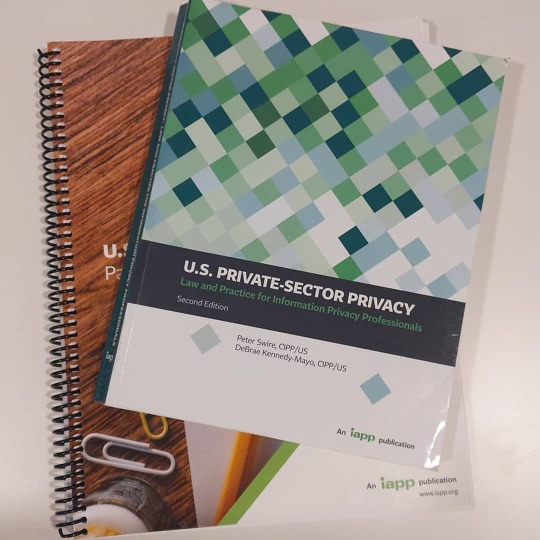#PrivacyPro
Explore tagged Tumblr posts
Text
best content protector plugin protect your website
#wordpress#wordpress plugin#content protector#privacy protector#WordPressPlugins#PluginDevelopment#CodeBizz#PrivacyProtector#PrivacyPro#PluginSecurity#ContentProtection#WordPressSecurity#MakeMoneyOnline#EarnFromPlugins#DigitalProducts#PluginBusiness#PluginMonetization#WordPressTips#DeveloperTools#WebSecurity#NoRightClick#AntiCopyPlugin#WPDev#WebDevLife#TechEntrepreneur#BuildAndSellPlugins#PluginMarketing#PluginSetup#SecureCode#WordPressExperts
0 notes
Text
Take Control of Your Online Privacy: How to Remove Personal Data from Google Search
Protecting Your Privacy Online
In today's digital world, having personal information exposed online can be a serious concern. If you've ever searched your name and found your home address displayed in search results, you may be wondering how to remove home address from Google search. Exposing such sensitive details can lead to privacy risks, including unwanted solicitations or even identity theft. Fortunately, there are ways to manage your online presence and ensure that your personal data remains secure.
Understanding How Google Displays Personal Data
Google does not directly publish personal information but indexes data from various websites, including public records, social media, and business directories. This means that even if you haven't personally shared your details, they could still appear in search results. If you want to protect your privacy, it's essential to understand how this information gets online and what steps you can take to request its removal.
Steps to Remove Home Address from Google Search
If you find your home address or other private details online, here’s what you can do:
Contact the Website Owner Since Google only indexes content from other websites, the best way to remove home address from Google search is to ask the website hosting the data to delete it. Look for contact details on the site and request removal.
Use Google’s Removal Request Tool If a website refuses to remove your information, you can submit a removal request to Google. The platform has specific forms for requesting personal data removal, especially if the information poses a security risk.
Update Privacy Settings on Online Accounts Review your privacy settings on platforms like social media, online directories, and e-commerce sites. Limit the amount of personal data available to the public to reduce its visibility in search results.
Opt-Out of Data Broker Sites Many third-party sites collect and sell personal data. Search for your name on data broker platforms and use their opt-out options to request removal.
Use Legal Options if Necessary If your information is shared without consent and violates privacy laws, you may consider legal action. Some regions have strict data protection laws that require websites to remove personal information upon request.
The Role of Privacy Services
Managing online privacy can be time-consuming, especially if your information is scattered across multiple platforms. Professional privacy services, like PrivacyPros, specialize in personal data removal, helping individuals regain control over their digital footprint. These services track down and remove sensitive data from various sources, ensuring long-term privacy protection.
Maintaining Long-Term Privacy
Once your information is removed from search results, take proactive steps to prevent future exposure:
Regularly search your name online to monitor for new data leaks.
Avoid sharing personal details on public forums or social media.
Use privacy-focused browser settings and VPNs to limit data tracking.
Conclusion
Protecting personal information online is essential in today’s digital landscape. Whether you choose to handle it yourself or work with professionals like PrivacyPros, taking action to remove sensitive data can safeguard your privacy and security. By staying proactive and regularly monitoring your online presence, you can reduce the risk of personal information being exposed in search results.
0 notes
Photo

This is how I'll be spending my winter break between semesters of law school. I plan to test in the summer of 2020. #PrivacyProfessional . . . . . . . . . . . #privacy #privacypro #privacylaw #iapp #cipp #cippus #lawstudent #lawschool #onel #1l #1latnel https://www.instagram.com/p/B6MT1ujlowV/?igshid=1pm0ikjhhsvkj
#privacyprofessional#privacy#privacypro#privacylaw#iapp#cipp#cippus#lawstudent#lawschool#onel#1l#1latnel
2 notes
·
View notes
Text
Protégez vos données personnelles !
Vous protégez, se protéger. Petite anti-sèche sur les lois qui nous protègent ! @privacypros @rcalo #RGPD #DataPrivacy
Dans un monde numérique qui capte toutes vos informations , phishing, usurpation d’identité .. Soyez rassurés ou pas. Des lois nous protègent , comme le RGPD ( le règlement européen de la protection des donnes personnelles ). Qui engagent les entreprises à se préoccuper sur vos donnes personnelles. Le sujet n’est pas nouveau. Voici un petit résumé sur les textes de loi depuis la seconde…

View On WordPress
0 notes
Text
Search Encrypt Tweeted
16 Privacy and Cybersecurity Blogs You Should Be Reading (via @Medium) https://t.co/82GPo3Vjxk
— IAPP (@PrivacyPros) October 26, 2018
0 notes
Text
RT @IBM_CCG: Big Data, Big Responsibility: Complying with New and Emerging Privacy Laws - a relevant discussion for today led by @JeffJonas and @banjaxx and moderated by Donald Codling. An @PrivacyPros event, hosted with IBM's A3 Center. #CCGEvents @Annette_Goulet https://t.co/1EheX51hqy
Big Data, Big Responsibility: Complying with New and Emerging Privacy Laws - a relevant discussion for today led by @JeffJonas and @banjaxx and moderated by Donald Codling. An @PrivacyPros event, hosted with IBM's A3 Center. #CCGEvents @Annette_Goulet pic.twitter.com/1EheX51hqy
— IBM CCG (@IBM_CCG) November 14, 2018
from Twitter https://twitter.com/Ross_Radev
0 notes
Text
How to Remove Your Number from Google and Opt Out of Fast People Search
In today’s digital world, maintaining your privacy can feel like an uphill battle. A significant part of safeguarding your privacy is ensuring your personal information, like your phone number, is not easily accessible online. Many people wonder, “How do I remove my number from Google?” or “Can I opt out of Fast People Search?” The good news is that taking control of your online presence is possible with the right steps.
Why Is Your Information Online?
Search engines like Google and platforms like Fast People Search aggregate publicly available data, often making your information accessible without your consent. This includes phone numbers, addresses, and more. Data brokers collect this information from public records, social media platforms, and other online sources, creating a digital footprint that can compromise your privacy.
Steps to Remove Your Number from Google
Removing your phone number from Google involves a strategic approach. Here’s how:
Search for Your Number: Start by typing your phone number into Google’s search bar. Note the websites where your number appears.
Contact the Websites: Visit each site and look for an opt-out request form or contact page. Request them to delete your information.
Submit a Removal Request to Google: Google allows you to submit a removal request if sensitive information, like a phone number, appears in search results. Visit Google’s Personal Information Removal page, fill out the form, and provide the necessary details.
How to Opt Out of Fast People Search
Fast People Search is a popular platform for locating personal details. Fortunately, opting out of this platform is straightforward:
Visit the Fast People Search Opt-Out Page: Navigate to their opt-out section, often found in the footer or support area of their website.
Locate Your Listing: Enter your name and city to locate your profile.
Submit a Request: Click on your profile and follow the instructions to opt out. You may need to provide an email address for confirmation.
Verify Removal: Check back after a few days to ensure your information has been successfully removed.
Tips for Maintaining Privacy Online
Use Privacy Settings on Social Media: Ensure your profiles are private, and limit the amount of personal information you share.
Regularly Monitor Your Online Presence: Perform regular searches for your name and phone number to catch and address new listings quickly.
Consider a Privacy Service: Platforms like PrivacyPros offer comprehensive privacy solutions, helping you monitor and remove your information from multiple data brokers.
Conclusion
Taking steps to remove your number from Google and opting out of platforms like Fast People Search is crucial for protecting your online privacy. While the process requires effort and vigilance, it significantly reduces the risk of unwanted contact or identity theft. By following the steps above and utilizing services like PrivacyPros for enhanced support, you can take control of your digital footprint and safeguard your personal information.
0 notes
Text
How to Protect Your Privacy Online Effectively
In today’s digital age, safeguarding your online privacy is more important than ever. Personal information can easily be found and misused by malicious actors. Whether you want to opt out of fast people search platforms or learn how to remove doxxing content on Google, understanding the steps to secure your data is critical. This article will guide you through effective ways to protect your personal information online.
https://www.behance.net/gallery/215341821/Privacypros
0 notes
Text
How to Protect Your Privacy Online Effectively
In today’s digital age, safeguarding your online privacy is more important than ever. Personal information can easily be found and misused by malicious actors. Whether you want to opt out of fast people search platforms or learn how to remove doxxing content on Google, understanding the steps to secure your data is critical. This article will guide you through effective ways to protect your personal information online.
https://www.behance.net/gallery/215341821/Privacypros
0 notes
Text
Simplified Steps to Secure Your Online Privacy
In today’s digital age, managing your online presence is crucial. Many individuals are now asking how to remove my personal data from Google and other platforms to protect their privacy. While the internet has made information accessible, it has also made personal data vulnerable to misuse. Thankfully, with the right steps, you can regain control of your online information.
Why Protecting Your Online Data Matters
Your personal information is scattered across various platforms, from search engines to social media sites and even obscure data brokers. This makes it easier for cybercriminals, marketers, or even strangers to access sensitive information like your home address, phone number, or email. Removing personal data ensures not only privacy but also enhanced security against identity theft and spam.
Steps to Remove Personal Data
Start with Google Google is often the first place personal data appears, whether through search results, social media profiles, or public databases. To remove my information from internet search results, visit Google’s “Remove Outdated Content” tool. You can request the removal of pages that contain outdated or sensitive information.
Opt-Out of Data Broker Websites Many third-party data broker websites collect and sell personal information. Sites like Spokeo, Whitepages, and MyLife allow users to opt-out of their databases. Although it can be time-consuming, this step significantly reduces your online footprint.
Update Privacy Settings Check privacy settings on your social media platforms. Limit who can view your profiles and personal information. For instance, platforms like Facebook and Instagram offer privacy tools to hide your email, phone number, or posts from public view.
Directly Contact Website Owners If your information is published on a specific website, contacting the webmaster or site owner is a proactive step. You can request that they take down sensitive information that you don’t want to be public.
Leverage Professional Help PrivacyPros offers expert assistance in removing personal data from the internet. Their tailored services provide a thorough approach to ensure your data is erased from various sources.
Proactive Measures for Future Protection
Once you’ve removed most of your data, focus on staying private:
Be Cautious Online: Avoid oversharing personal details on social media or public forums.
Use Privacy Tools: Tools like VPNs, encrypted browsers, and anti-tracking software can minimize exposure to data collection.
Regularly Audit Your Online Presence: Search for your name periodically to check for new instances of exposed information.
Conclusion
Taking control of your digital footprint is essential in maintaining your privacy and security online. Whether you’re looking to remove my personal data from Google or completely remove my information from internet, consistent effort is key. With the right tools and practices, you can navigate the web without compromising your personal data.
For professional help, PrivacyPros offers comprehensive solutions tailored to your needs. Don’t wait until it’s too late—take charge of your online privacy today.
0 notes
Text
How to Safeguard Your Online Privacy by Removing Sensitive Information
In today’s digital age, protecting your personal information online has become more crucial than ever. If you've discovered sensitive details, such as your home address, appearing in search results, it’s vital to take swift action. Learning how to remove doxxing content on Google and remove home address from Google search can help protect your privacy and security.
The Growing Threat of Online Exposure
The internet has made it easier to access personal information, but this accessibility comes with risks. Doxxing—when someone publicly shares personal data without consent—is a serious invasion of privacy. Your home address, phone number, or other sensitive details being exposed can lead to unwanted contact or even dangerous situations. Thankfully, there are steps you can take to regain control over your online presence.
Steps to Remove Sensitive Information from Google
Removing personal information from search results may seem daunting, but it is possible. Here’s how you can proceed:
Request Google’s Assistance
Google allows individuals to request the removal of certain types of content, including doxxing material and private information, from its search results. You can fill out their online form to report the issue.
When submitting a request, be specific and provide URLs leading to the problematic content. This ensures Google can verify and act on your claim.
Contact Website Administrators
Sometimes, the information isn’t hosted by Google but on third-party websites. In such cases, reaching out directly to the website owner or administrator is essential. Politely request the removal of your details, explaining the privacy risk involved.
Use Privacy Protection Services
If navigating this process feels overwhelming, consider working with professionals. Privacy-focused companies can handle the technical aspects of removing sensitive content while providing peace of mind.
Best Practices for Preventing Online Exposure
While removing existing content is crucial, preventing future occurrences is equally important. Here are a few tips:
\Limit Personal Information Sharing:ᅠBe cautious about the information you post online, especially on social media platforms.
Adjust Privacy Settings:ᅠRegularly review and update privacy settings on social media and other online accounts.
Use Online Monitoring Tools:ᅠTrack where your personal information appears and act promptly if anything concerning surfaces.
Why Taking Action Matters
Leaving sensitive information accessible online can lead to significant risks, including identity theft, stalking, or harassment. By understanding how to remove doxxing content on Google and remove home address from Google search, you are taking a proactive step toward safeguarding your digital privacy.
A Trusted Partner in Privacy Protection
PrivacyPros specializes in helping individuals and businesses secure their online presence. Whether you need assistance in removing personal data or preventing future exposure, PrivacyPros offers tailored solutions to meet your needs.
By addressing online privacy threats today, you can enjoy peace of mind knowing your information is secure. Take action now to protect yourself and your loved ones from the risks of digital exposure.
0 notes
Text
How to Protect and Remove Personal Information Online
In today’s interconnected world, safeguarding personal information is more crucial than ever. With cyber threats, data breaches, and identity theft on the rise, ensuring that your private information is protected online should be a top priority. For those who want to take proactive measures, understanding how to remove private information from the internet is a vital first step.
Why Protecting Personal Information Matters
Every time you browse, shop, or engage on social media, you leave behind digital footprints. These traces can include your name, address, phone number, email, and even sensitive financial details. Unfortunately, cybercriminals and unethical data brokers exploit this information for fraud, spam, or unauthorized marketing.
By protecting your personal information, you reduce the risk of identity theft, safeguard your privacy, and ensure that your digital presence is secure.
Steps to Remove Private Information from the Internet
Search Yourself Online
Begin by Googling your name and key personal details. This will help you identify which websites or platforms have your information.
Contact Websites Directly
If you find your details on websites, reach out to their support team to request removal. Platforms often comply with privacy laws and user requests.
Use Opt-Out Services
Data brokers aggregate and sell personal information. Many provide opt-out options for removing your data. However, the process can be tedious.
Secure Social Media Profiles
Review privacy settings on all your social media accounts. Limit the visibility of your profiles and remove unnecessary personal details.
Work with Professionals
Services like Privacypros specialize in comprehensive data protection. They handle the tedious task of removing personal data from various online sources, ensuring complete privacy.
Tips to Keep Your Information Safe
Use strong, unique passwords for online accounts.
Avoid sharing sensitive information on public platforms.
Regularly monitor your digital presence for unauthorized use of your details.
Conclusion
In an era where personal information is constantly at risk, taking steps to remove your private data from the internet is not just wise—it’s essential. By acting proactively, you can enjoy peace of mind and greater control over your digital identity.
For those who find the process overwhelming, Privacypros offers a trusted solution. Their team of experts ensures your personal information is removed from the web and protected against future threats. With Privacypros, safeguarding your online privacy has never been easier.
For more info:-
personal information protection
remove private information from Internet
0 notes
Text
How to Remove Your Home Address and Name from Google Search
In today’s digital world, personal privacy has become a top concern for many. Often, individuals are surprised to find that their home address or full name appears in Google search results, accessible to anyone with an internet connection. Fortunately, it’s possible to take steps to protect personal information online, keeping your home address and name secure. Here’s a guide on how to remove this information from Google search results and maintain better control over your digital footprint.
Steps to Remove Home Address from Google Search
Request Removal from Google: Google provides a formal process to remove certain personal information from its search results. You can start by filling out the Remove Information from Google form, where you’ll specify what information you want to be removed and why it poses a risk. While Google reviews each request, they will typically remove sensitive information like a home address.
Opt-Out of Data Broker Sites: Many times, Google displays data pulled from third-party data broker sites, such as Whitepages or Spokeo. These platforms often sell personal data, making it easily accessible in search results. Visiting these sites and opting out of their services can help keep your home address off Google.
Update or Limit Social Media Information: Google indexes information from public social media profiles. Ensure that your privacy settings on platforms like Facebook, LinkedIn, and Instagram are set to private, and consider removing your address if you’ve included it in your profile information.
Steps to Remove Your Name from Google Search
Request De-Indexing of Personal Content: If your name appears in unwanted or irrelevant search results, request de-indexing from Google. This process is especially helpful for removing outdated or harmful content that may impact your reputation.
Contact Website Owners: In some cases, Google may not remove a result if the information exists on a third-party site. Directly contacting the website owner to request removal is often effective, especially for personal or sensitive data.
Set Up Google Alerts: By setting up Google Alerts for your name, you’ll receive notifications if new information about you appears online, allowing you to act quickly if sensitive data surfaces.
Conclusion
Protecting your privacy online can be challenging but is necessary to safeguard against potential threats. By following these steps, you can start to regain control over your personal information online. For expert help in removing your address, name, or other private data from search results, consider reaching out to PrivacyPros. They specialize in securing personal information and offer tailored solutions to protect your privacy, ensuring peace of mind in the digital landscape.
For more info:-
remove home address from google search
remove name from google search
0 notes
Photo

How to turn up on a Friday night during summer break: post workout shake and a little privacy law studying. . . . . . . . . #p90x #workout #workingout #shake #recovery #study #studygram #studyblr #studying #privacy #privacypro #privacyprofessional #privacylaw #law #legal #lawyer #friday #fridaynight #night #turnup #weekend #summer #summerbreak #summer2019 #summer19 #2019 (at Boston, Massachusetts) https://www.instagram.com/p/BxTllUXFKwQ/?igshid=4oryznamqsj3
#p90x#workout#workingout#shake#recovery#study#studygram#studyblr#studying#privacy#privacypro#privacyprofessional#privacylaw#law#legal#lawyer#friday#fridaynight#night#turnup#weekend#summer#summerbreak#summer2019#summer19#2019
2 notes
·
View notes
Photo

Got a new lamp for my desk for all these long nights to come in law school. But until then it's for all these long nights studying for the CIPP/US. . . . . . . . . . . . #lamp #ilovelamp #ikea #iapp #cippus #privacypros #privacy #privacylaw #loccitane #study #studying #latenight #books #student #law #lawschool #lawschoolbound #0l #1l #prelaw #futurejdstudent #futurelawyer (at Revere, Massachusetts) https://www.instagram.com/p/BzD5ZLSlqMS/?igshid=82up22ox1mv4
#lamp#ilovelamp#ikea#iapp#cippus#privacypros#privacy#privacylaw#loccitane#study#studying#latenight#books#student#law#lawschool#lawschoolbound#0l#1l#prelaw#futurejdstudent#futurelawyer
0 notes